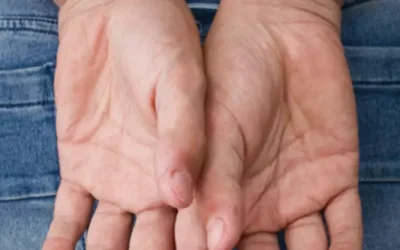Involuntary Rehab: Can You Force Someone to go to Rehab?

While there are treatment options for minors, forced rehab is not a route available for desperate family members. The Mental Health Act also applies to children under the age of 18 years of age. Matthew “Casey” Wethington died when he was 23 due to a heroin overdose. Casey was described as an energetic and athletic young man until he became involved with drugs. Casey’s family lost their son after being told for years there was nothing they could do to help him. His family long pushed to give him what they described as a right to live in recovery.
Unlocking the Best Resources for Drug Addiction
- Through our integrated treatment programs, we've helped thousands of people choose recovery over addiction and get back to life on their own terms.
- For those who are resistant to treatment, the idea of being able to continue going to work and caring for family may make the prospect of addiction treatment more palatable.
- The details will be determined by the petition, the evidence and, ultimately, the judge’s decision.
Advocates said they felt it was hard to access and expensive for families. The Hamilton County Addiction Response Coalition came forward, creating a committee to fix the law five years ago. A family member of someone with a substance use disorder can now go to the probate court office and ask for help to do the paperwork to file a petition.
Family Referrals
We have a large number of helpful services available to help give you the best possible support when it comes to dealing with addiction. If you are unable to afford private treatment then public healthcare and charities would also be recommended to you. All calls are strictly confidential and are carried out by a trained healthcare professional. Our clean and comfortable facilities near world-class beaches offer an excellent place to spend your time in recovery. Check out our gallery to view our detox, residential, outpatient, and sober living facilities.
Why is Inpatient Treatment Important?
Forced rehab saves lives, U.S. police chief says of N.B. plan - CBC.ca
Forced rehab saves lives, U.S. police chief says of N.B. plan.
Posted: Sat, 16 Sep 2023 07:00:00 GMT [source]
Moreover, using involuntary commitment could raise ethical concerns about the individual’s rights and autonomy. If you live in a state with involuntary commitment laws and you are concerned about a loved one’s substance use, familiarize yourself with the requirements and processes in your area. In Ohio, to qualify for a Casey’s Law petition, someone must suffer from alcohol or other drug abuse and be a danger or threat to their family, themselves or others. Vermont is the only state where you can force someone into rehab for drug abuse only.
Is The Current Involuntary Addiction Treatment System Adequate?
In order to help loved ones get their addicted friends or family members admitted into a care facility, there are some laws that grant permission for you to put them in rehab. If you are worried about someone you love, the best thing you can do is talk to them. If they are open to going to rehab, you can help them research treatment how to get someone into rehab options and find a facility that is right for them. These criteria might sound strict, especially if you are a parent or a family member watching your loved one struggle from addiction with no help in sight. However, these rules are in place to preserve the freedom and autonomy of all individuals as much as possible.
Can You Develop Heart Palpitations From Drinking Alcohol?
North Carolina Involuntary treatment Laws allow individuals with mental health disorders to be committed to rehab against their will. According to the Baker Act NC, the involuntary care NC procedure involves the assessment of each individual’s case to decide if they meet the criteria for involuntary rehab services. An intervention is when a person’s family or friends uses peer pressure to prompt a loved one to admit their problem and go to a rehab center. Many people seek a mental health professional or interventionist for guidance in staging an intervention.


The information we provide is not intended to be a substitute for professional medical advice, diagnosis or treatment. It should not be used in place of the advice of your physician or other qualified healthcare providers. The best course of action you can take now before attempting an involuntary commitment is to help your loved one seek treatment on their own. Look for treatment centers that might appeal to them in terms of the location or the services provided, such as legal services, family counseling, educational help, medical treatments, and mental health services. And if finances prevent them from getting treatment, there are options for using public assistance for rehab. You can call an addiction helpline to find help, get guidance, and better understand options.
- Addiction treatment centers will prepare for new arrivals in order to take them in as soon as they accept treatment.
- But, some people will let their walls down, do the work, and achieve recovery.
- But it is again important to note that unless sentenced, a person can leave the rehab wherever they want to.
- Maximum commitment times vary from 72 hours to a year, with the average period being 90 days.
Intervention and Support
- Support groups like Al-Anon and Nar-Anon can help you cope with your loved one’s addiction and recovery.
- Once sober, patients are given resources to continue recovery outside of rehab.
- Look for rehabs in locations they would like to visit or with amenities and services that appeal to them.
- Individuals who have harmed others or intend to harm others due to alcohol or substance abuse can be involuntarily committed for treatment in Colorado.
- For many, online rehab options are the most effective choice, especially for people who need Medication for Addiction Treatment (MAT) for opioid use disorder (OUD).
- Involuntary rehab refers to imposed substance abuse treatment for individuals who are unable or unwilling to seek treatment for themselves.
Get The Best Of All Hands Delivered To Your Inbox
Subscribe to our newsletter and stay updated.

